Why Is Your Senior Cat Losing Its Whiskers?
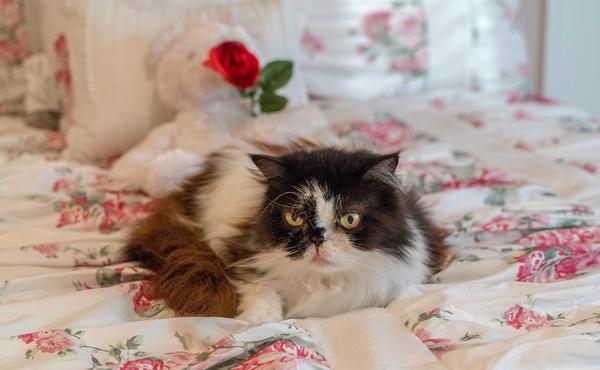
Here's the reality:
Your beloved senior cat is losing its whiskers, and it feels like your heart is breaking piece by piece.🥺
But imagine the consequences of not finding out why.
The anxiety and worry are consuming you, and it's time to take action.
Today's guide holds the answers you need.
Let's dive in!
Common Causes of Whisker Loss in Aging Cats
As cats get older, they naturally start to lose their whiskers due to reduced blood flow to the hair follicles.
This weakens the whiskers and eventually leads to their loss.
If senior cats don't groom themselves as often, it can contribute to whisker loss.
With weaker hair follicles, aging cats become more prone to infections which can cause skin problems.
But why do senior felines lose their whiskers?
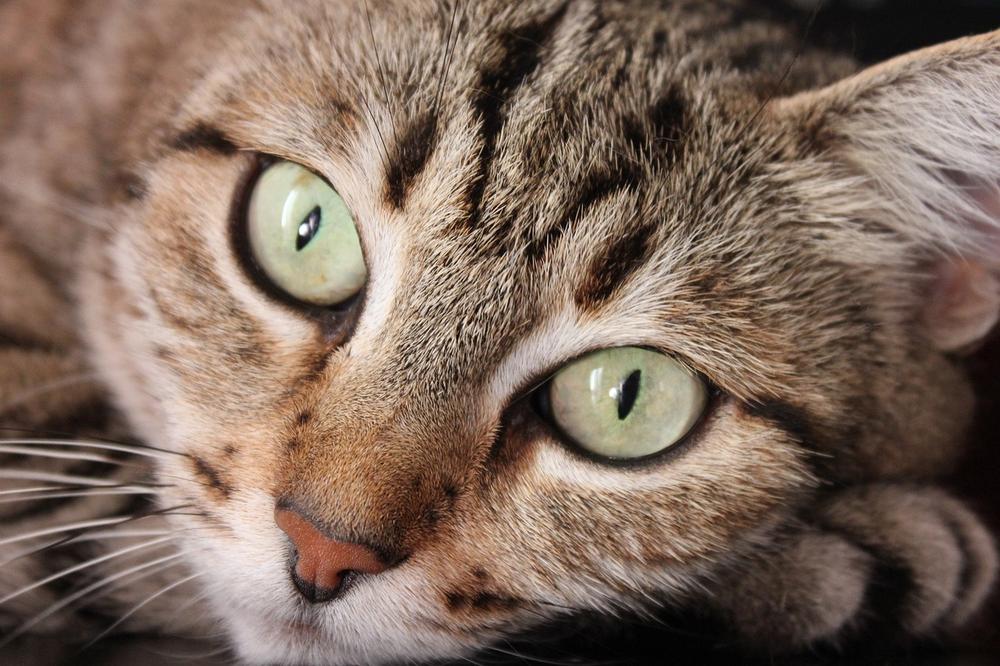
Here are some common reasons:
- Allergies: Cats can develop allergies to things in their environment or certain foods which results in intense itchiness on their face and whisker loss.
- Infections: Bacterial or fungal infections can irritate the skin and cause whisker loss in aging cats.
- Feline Acne: Believe it or not, even cats can get acne! When this happens, inflammation occurs in their chin area, leading to whisker loss.
- Trauma or Physical Damage: Whiskers can be damaged or fall out if a cat is injured or comes into contact with sharp objects.
- Hormonal Changes: Conditions like hyperthyroidism can affect a cat's whiskers and may require medical treatment.
- Medications: Certain drugs, especially corticosteroids, can temporarily cause hair loss in cats.
While whisker loss is a normal part of aging, you ought to pay attention to any changes and seek veterinary advice if necessary.
By understanding the potential causes of whisker loss and addressing underlying issues, you can help your senior cat maintain their all in all health and well-being. 😺
And if you're wondering why your aging cat's whiskers are shortening, don't worry, I've got you covered.
In my article, Why Are My Cats Whiskers So Short, I delve into the possible reasons behind this phenomenon.
From allergies to infections and even hormonal changes, understanding the root cause can help you address any underlying issues.
So, if you want to know more, don't hesitate to check out my enlightening blog post.
Using Whisker Loss to Identify Health Issues in Senior Cats
When senior cats start losing their whiskers, it might mean something's wrong. Allergies or infections could be lurking.
Don't ignore excessive or sudden whisker loss in your old kitty. It needs to be dealt with.
If your cat's whisker loss comes with oozing, flaking, inflammation, and other signs of trouble, it could be a skin infection caused by bacteria, fungi, or parasites.
Keep an eye out for strange clusters of lost whiskers or if your cat gets touchy in certain spots. Tick bites, lice, swelling, or broken bones should also raise a red flag.
Although hair loss is not the norm for cats with cancer unless weight loss and tumors are involved, better safe than sorry—get your vet's opinion.
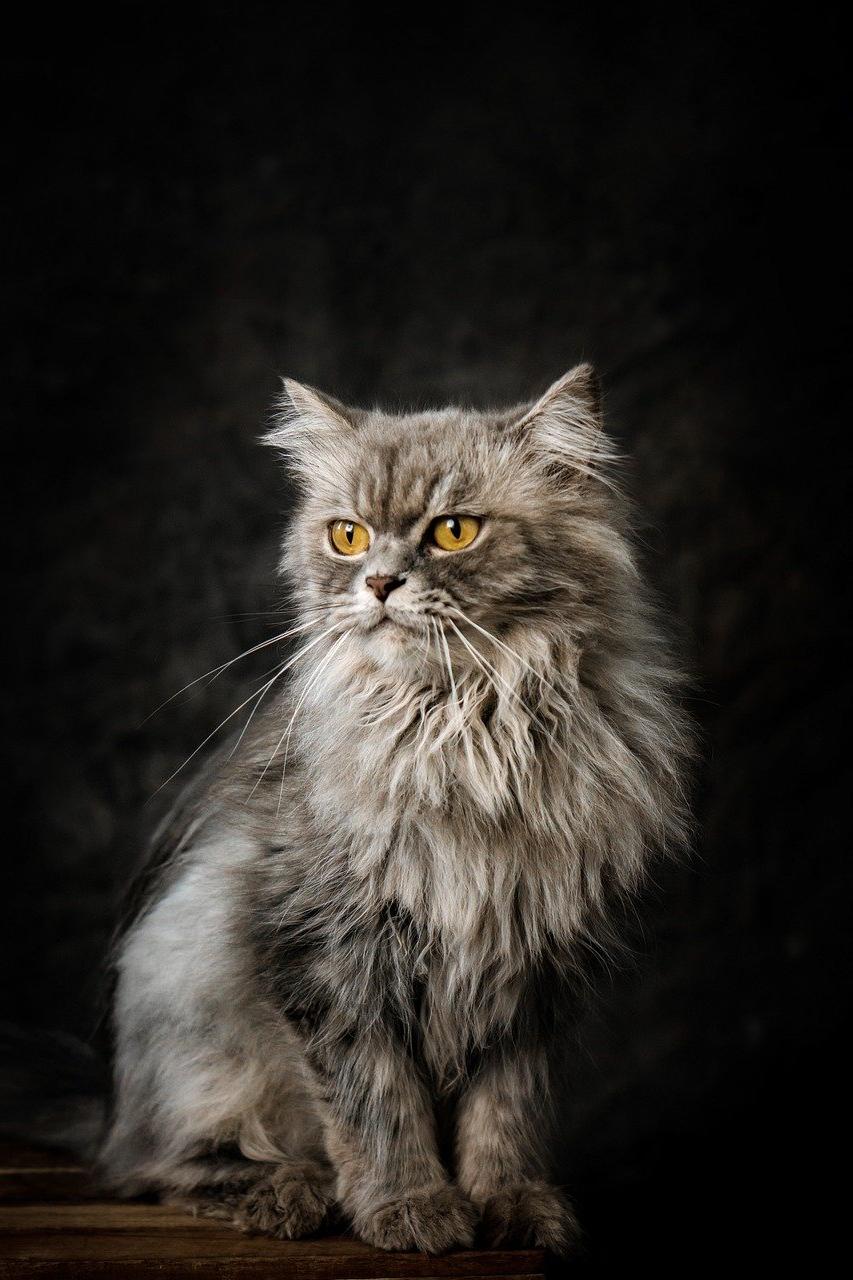
Cats' fur can serve as an early warning sign of illness, so you must catch it early and treat it effectively.
Don't forget to monitor your cat's urine too. Changes in litter color can give you valuable hints about their health.
To learn more about hyperthyroidism in cats, look up references from Cornell University College of Veterinary Medicine.
And it's not just whisker loss you need to be on the lookout for.
Did you know that dry, flaky skin and itchiness in cats could be indicators of underlying health issues?
Stick around to discover other common signs you should never ignore when it comes to your senior cat's wellbeing:
Signs and Symptoms of Whisker Loss in Senior Cats
Whisker loss in senior cats can point to underlying health problems.
How do you know if your cat is experiencing whisker loss?
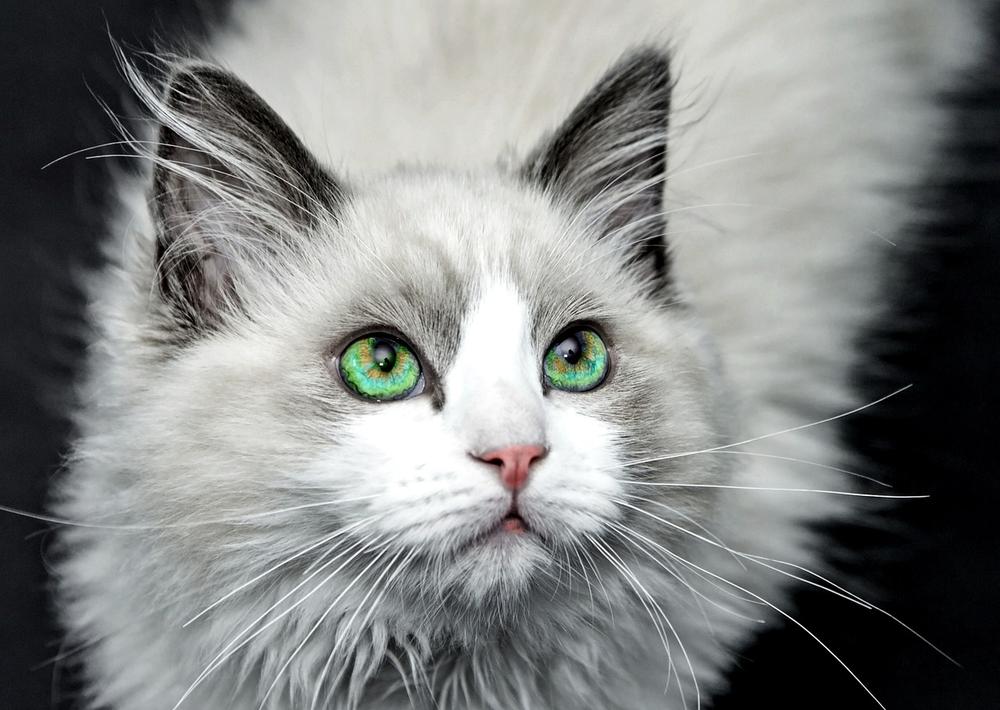
Here's what to look for:
- If your cat's skin looks dry or flaky, it may be a sign of whisker loss.
- Whisker loss can lead to itchiness or inflammation in the affected area.
- While shedding a few whiskers at a time is normal, excessive whisker loss in senior cats might indicate a problem.
- If your cat's whisker loss comes with fur loss, abnormal skin, lesions, scabs, flaky skin, or bald patches, don't hesitate to consult a vet.
- Keep an eye on grooming habits. Excessive self-grooming and hair removal could be a red flag that warrants further investigation.
Don't brush off whisker loss as purely cosmetic.
It could be a sign of an underlying health issue.
So pay attention to these signs and reach out to your vet if needed.
Understanding the Importance of Whiskers in Senior Cats
Cats' whiskers do more than just add some flair to their face. They actually play a big role in their lives, serving multiple purposes that you might not even realize:
- Whiskers help cats talk to each other, sort of like establishing personal space and avoiding any unnecessary drama.
- These special hairs give cats valuable info about what's around them when it's dark and hard to see.
- Whiskers act as a cat's measuring tool for tight spots, telling them if they can squeeze through an opening or not.
- Turns out, these whiskers are super sensitive and can detect even the slightest vibrations. So, cats are always on high alert!
- By picking up details about what's nearby, whiskers give cats a sense of where things are and how far away they are. It's like GPS for cats.
- If a cat's whiskers are relaxed, it means they're chill and feeling good.
- You should never mess with a cat's whiskers by cutting or plucking them. It messes up their whole system, leading to confusion and disorientation. Not cool.
- Every now and then, a cat's whiskers naturally fall out and bring good luck if you find one.
To sum it up, those whiskers are crucial to a cat's everyday life. They help them get around, have a chat, and stay balanced.
So, don't ignore the importance of your senior cat's whiskers. They really need 'em to be happy and healthy.
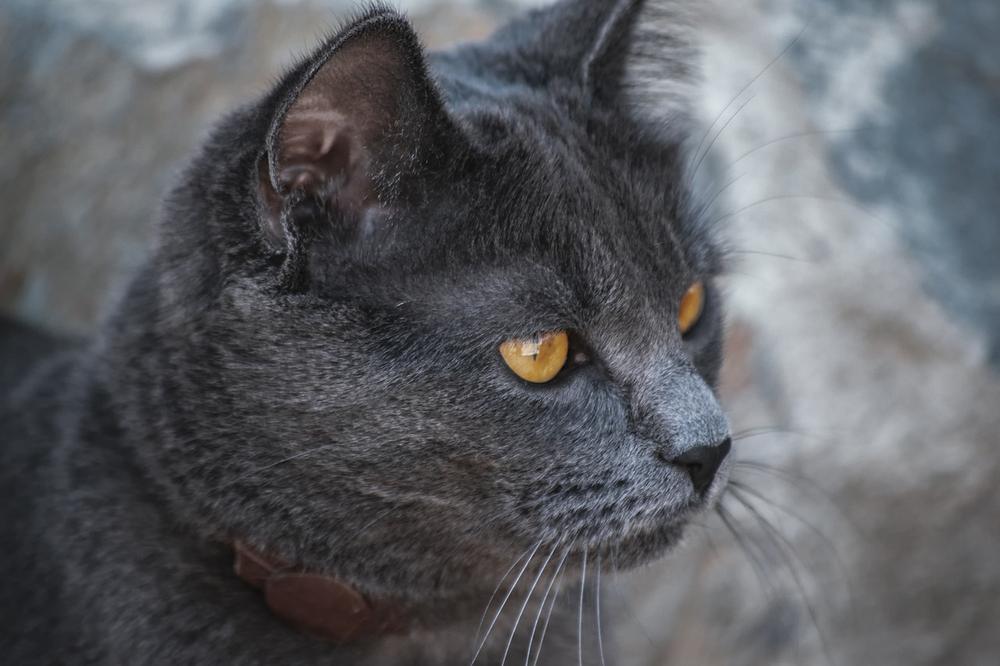
If you're wondering why your cat's whiskers are so long, I invite you to discover the fascinating reasons behind it in Why Are My Cats Whiskers So Long. You won't believe how these whiskers play such an important role in your furry friend's life!
Now that you understand the vital role whiskers play in your senior cat's life, you must be wondering how to address the issue of whisker loss.
So let me share some expert advice on creating a stress-free and comfortable environment for your feline friend, ensuring their whiskers stay intact and healthy!
Preventing Whisker Loss in Senior Cats: Tips From Vets
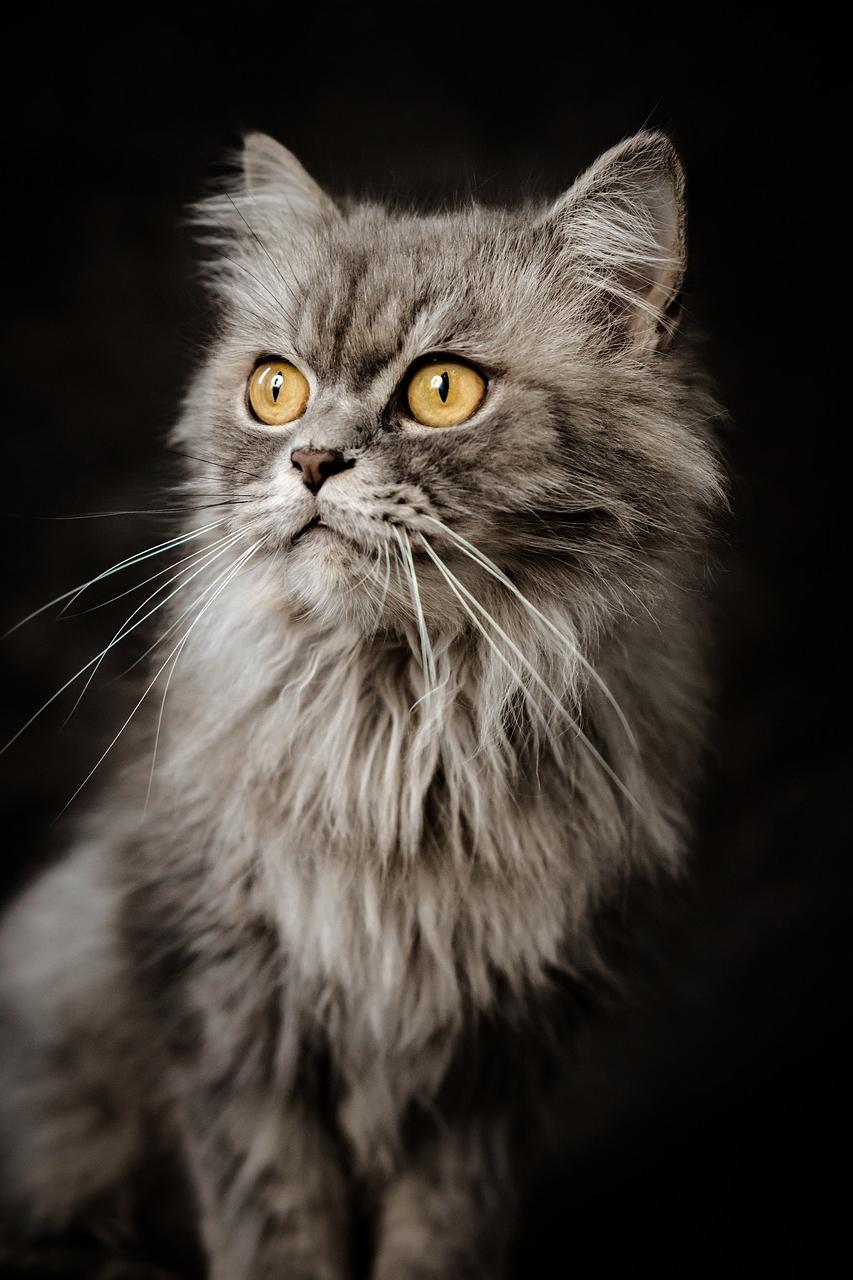
To keep your senior cat's whiskers healthy and happy, here's what vets suggest:
- Make sure your cat has a stress-free space where they feel safe, without tight corners that could lead to whisker loss.
- Give your senior feline a comfortable bed, so they can rest and sleep peacefully.
- Feed them a high-quality diet packed with essential nutrients that will support their whiskers for longer and healthier growth.
- Set up protected areas like cat trees or cardboard boxes where they can relax and enjoy some playtime.
- Take time to gently brush their whiskers, as it stimulates blood flow and keeps their whiskers in good shape.
- Keep your cat active by engaging in regular exercise and play sessions. It's essential for maintaining their overall health.
- Opt for metal or ceramic bowls instead of plastic ones. This helps prevent feline acne from developing around the whiskers.
- Establish a calm and predictable environment, especially for senior cats who may experience anxiety.
By adhering to these suggestions, you will be contributing to the protection of your elderly feline's whiskers and ensuring their overall health.
Effective Home Remedies for Whisker Loss in Senior Cats
To promote healthy hair follicle function and minimize whisker loss in your feline companion, consider applying a veterinarian-approved moisturizing balm specifically formulated for cats.
Regrowth of whiskers in senior cats is a desired outcome, but remember that addressing the underlying cause is crucial.
Preserving Whiskers: Senior Cat Care Essentials
- Whisker loss in aging cats is a natural process.
- Decreased grooming and weak hair follicles can contribute to whisker loss.
- Causes of whisker loss can include allergies, infections, feline acne, trauma, or physical damage.
- Hormonal changes like hyperthyroidism can cause hair loss in older cats.
- Some medications, like corticosteroids, may cause temporary hair loss in cats.
- Excessive whisker loss may indicate bacterial, fungal, or parasitic skin infections.
- Clusters or larger volumes of whisker loss are abnormal and should be investigated.
- Feline hair loss can serve as an early warning sign of illness.
- Whiskers have important functions in a cat's life and should not be cut or plucked.
- Creating a safe and comfortable environment can prevent whisker loss in senior cats.
- Regrowth of whiskers is possible, but the underlying cause should be addressed.
And that wraps up today's article.
If you wish to read more of my useful articles, I recommend you check out some of these: Cat Without Whiskers, Why Do Cat Noses Change Color, and Why Do Cats Noses Get Wet When They Purr
Talk soon,
-Sarah Davis